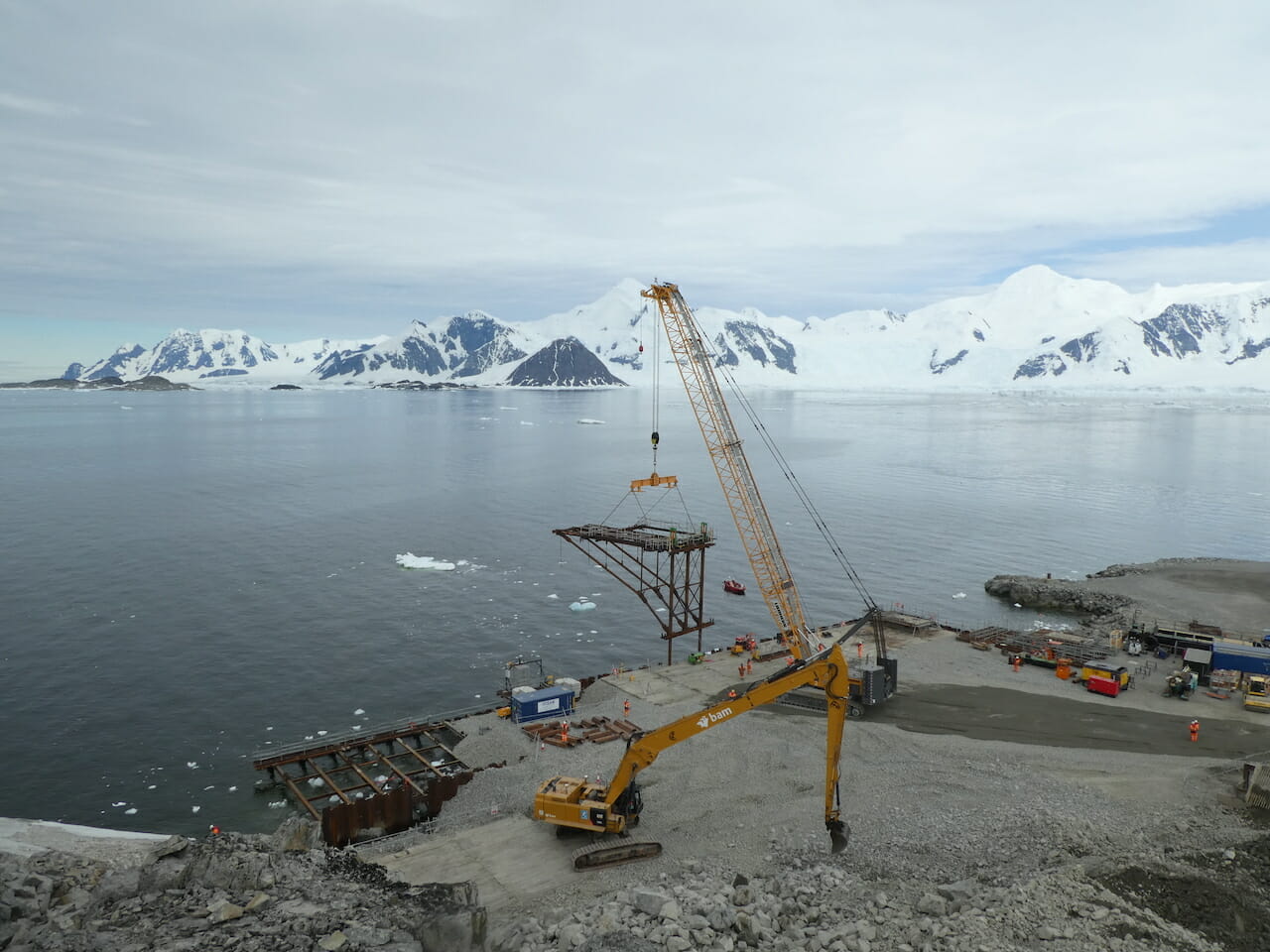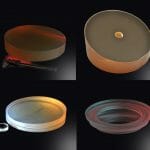Rockford, Illinois, U.S.-based The Caldwell Group Inc. has customized an adjustable, 101,413-lb. (46t) capacity lifting beam for the latest phase of the wharf modernization at British Antarctic Survey’s Rothera Research Station. Caldwell specifically designed and manufactured the lifting system to suit the harsh, cold environment.The model 24S-46t-315 adjustable bail lifting beam was delivered by Caldwell’s UK-based partner, Bishop Lifting, to BAM, who is working in partnership with the British Antarctic Survey (BAS), part of the Natural Environment Research Council (NERC), to deliver civil projects associated with the new RRS Sir David Attenborough, a research vessel owned by NERC and operated by BAS for scientific research and logistics projects. Principally, a new wharf will provide safe berthing and efficient operations for the iconic ship.
The 8,217mm (27ft.)-long beam was designed by Dan Mongan, special application support, new product development specialist at Caldwell. Due to the cold weather in the Antarctic, steel alloy selection, welding processes, and type of paint were all important considerations at the outset, he said. The beam was based on the standard model 24 adjustable bail lifting system, but offered higher capacity. ‘Bail’ refers to the center item that the crane hook attaches to.
It was 1,372mm (4.5 ft.) wide, 1,920mm (6.3 ft.) high and weighed in at 10,100 lbs. (4.58t). It was provided along with two patented model 52-58 adjust-a-leg wire rope slings with 6,705mm (22 ft.) reach. The rig will eventually be used to lift 20 wharf frames, the lightest weighing 77,162 lbs. (35t).
Ben Gates, business development director at Bishop Lifting Equipment, said: “The challenge was, in simple terms, to lift heavy loads, each with different centers of gravity. The adjustable bail solved the problem in that it can be adjusted in one direction and the adjust-a-leg slings in the other.”
Mongan said: “The successful utilization of the product on such a marquee project showcases our ability to engineer and ship below-the-hook solutions globally. Further, it serves as an example of what Caldwell and Bishop can achieve together; this project involved an extensive design phase, multiple Skype calls, and a collaboration of all relevant parties to arrive at the eventual rigging solution.”
As an aside, Mongan explained that adjust-a-leg slings can be locked into place for constant lifts and are ideal for use in rigging applications and machinery moving. They are often used, he said, for loads that are balanced and symmetrical, but with lifting points not located in a position for a level lift. They are also suited for use when lifting loads at any desired angle, simply by lifting the with sling legs at that desired angle.
Over the next decade, British Antarctic Survey’s Research Stations will undergo a comprehensive modernization program to ensure that facilities continue to enable world-leading research.
The new wharf is scheduled to be built over two Antarctic seasons, starting in November 2018 and completing in spring 2020, in order to improve ship and boating operations. The rear section of the new wharf was constructed in the first season, then the front section attached during the latest phase.
Gates added: “This is a very interesting project. At Bishop Lifting we have been delighted to play a part—albeit a small one.”








